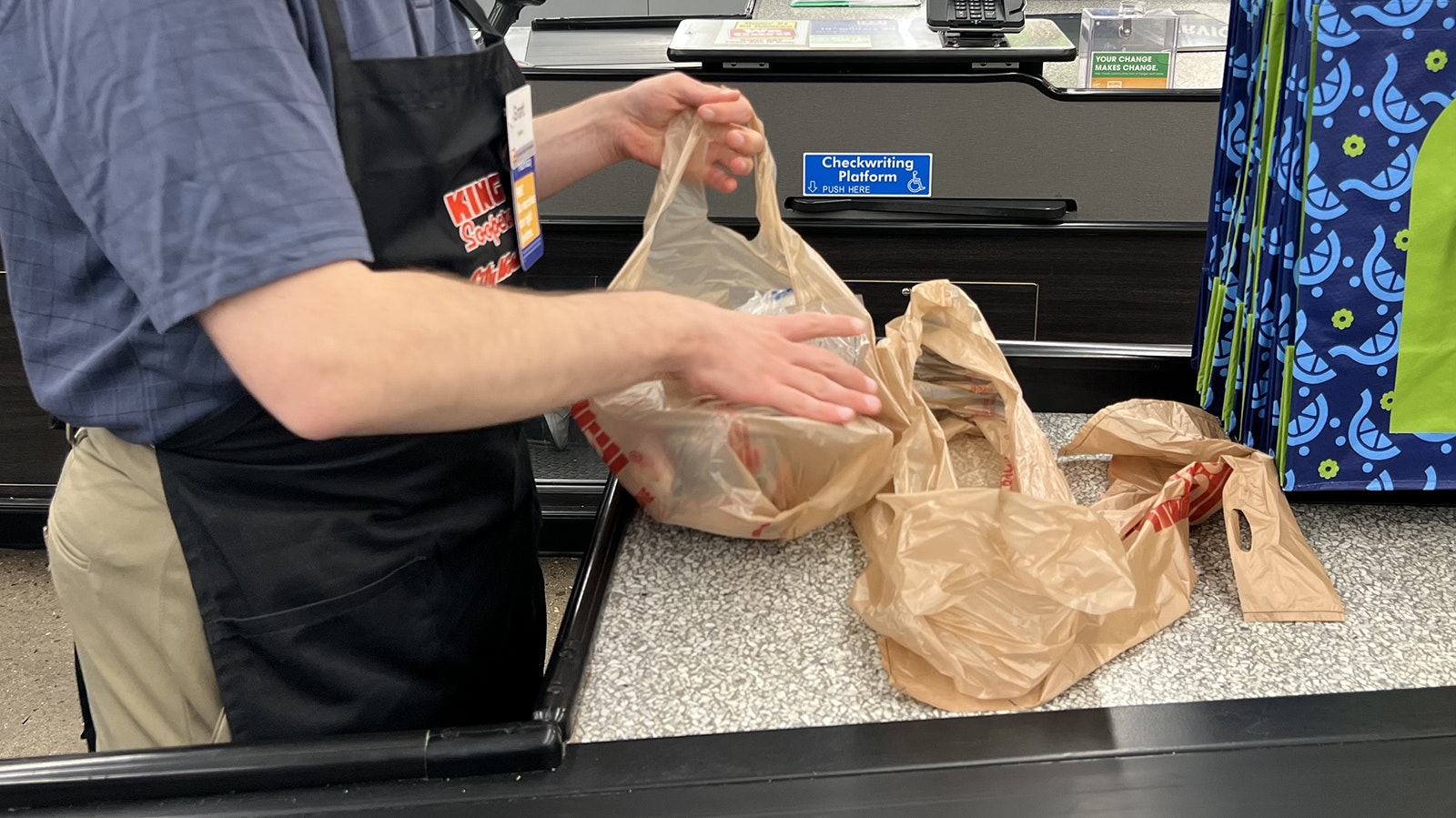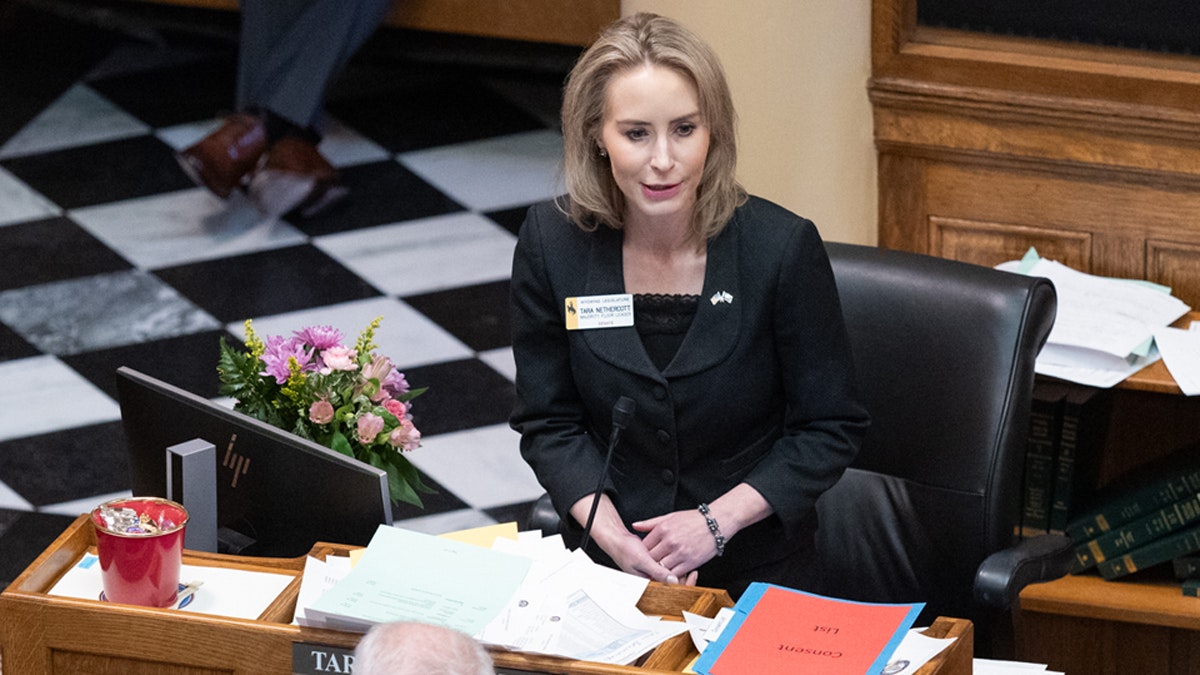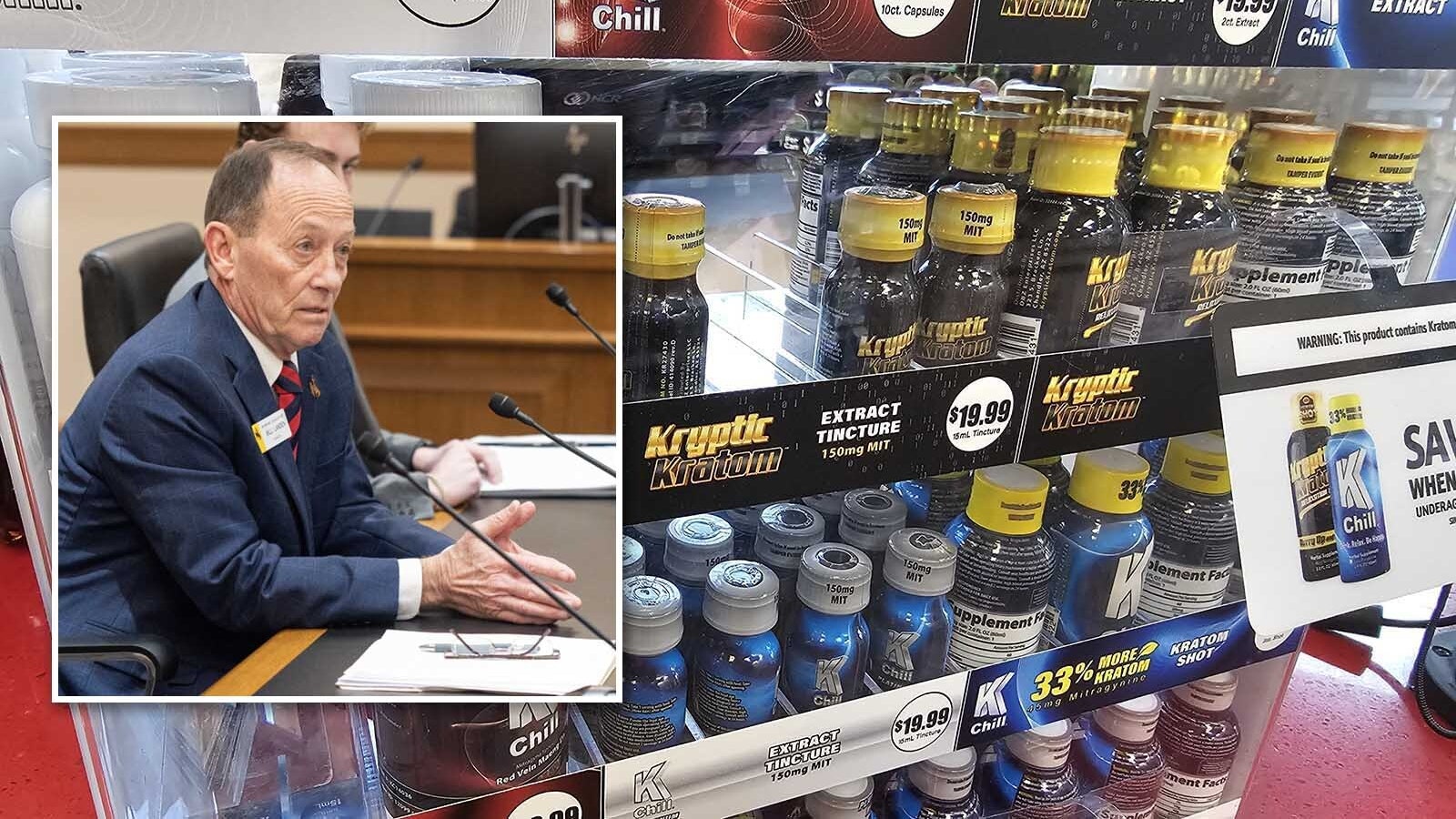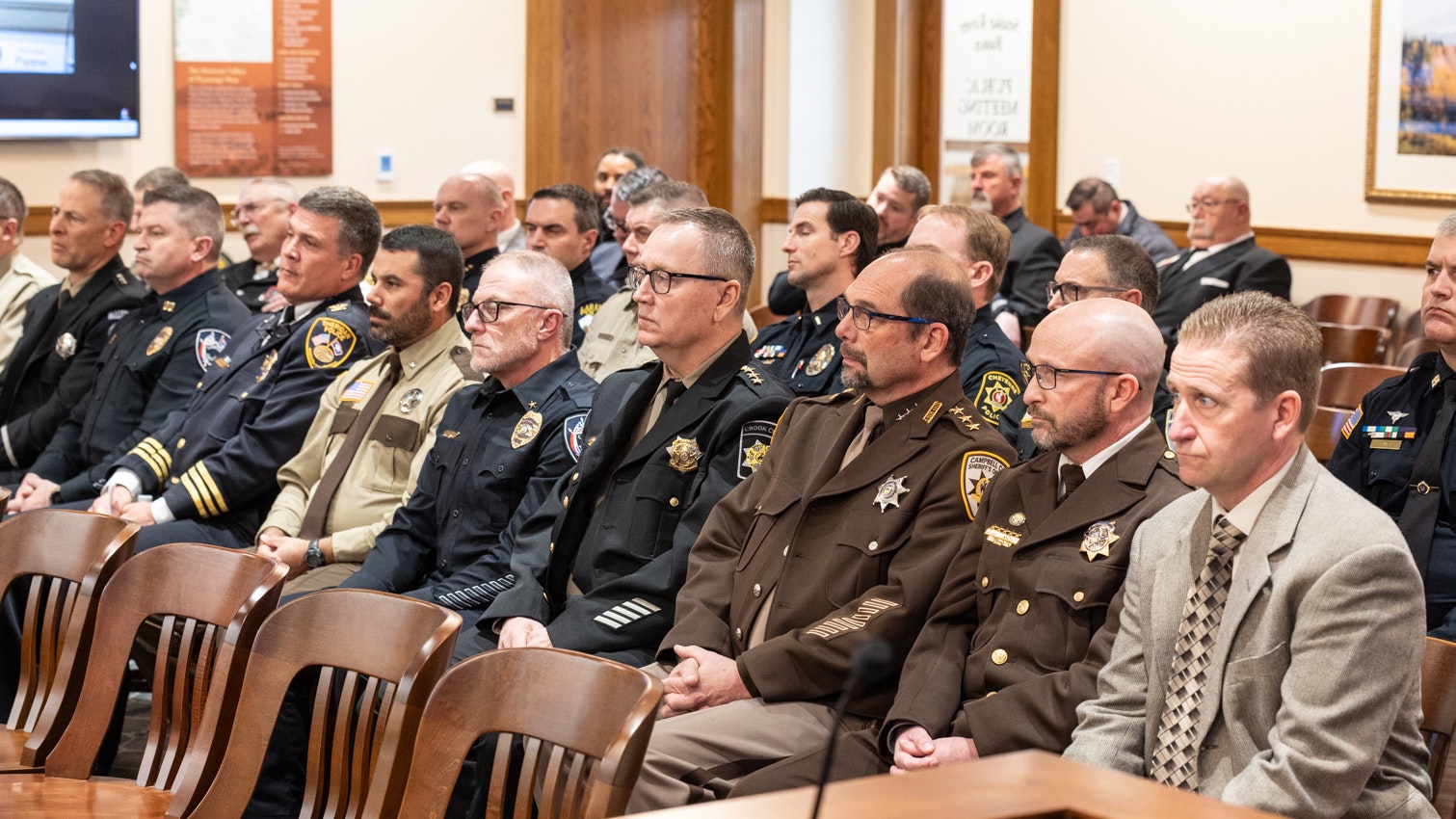Wyoming food advocates are sounding the alarm as SNAP, the state’s federally funded food assistance program, faces a projected budget shortfall of more than $3 million.
The massive government spending bill that President Donald Trump signed in July, aka the Big Beautiful Bill, decreased the federal government’s responsibility to fund state food assistance, or SNAP programs.
In Wyoming, that means the state will be required to cover 75% of the administrative costs for its food stamps program, an increase from 50%.
The Wyoming Department of Family Services confirmed to Cowboy State Daily this roughly accounts for an additional $3.4 million it must request from the state by October 2026 to keep its program afloat at the level it’s now funded.
Going Hungry
Tom Lacock, associate state director for AARP Wyoming, told Cowboy State Daily the $3.4 million amount represents a significant hurdle and potentially places the program in jeopardy.
“There’s just under 12,500 kids on SNAP right now,” he said. “That would be big. That would be really, really big in terms of pulling food away from them.”
Food Bank of Wyoming Director Danica Sveda told Cowboy State Daily that the state has the ninth highest rate of food insecurity of all U.S. states, making her work critical to those who rely on food banks to survive.
Sveda said that signing up to receive SNAP benefits is a lengthy screening and verification process to ensure that they are going to those who need it most. Of Wyoming’s SNAP recipients, 44% are children and 18% are seniors, she said.
“We do know that the people that have SNAP, they have it because it’s really necessary to have it,” she said. “We know that with the impacts of any cuts to SNAP in Wyoming, the people that will suffer the most are our most vulnerable residents.”
The maximum benefit an individual can receive on SNAP is about $389 per month, Sveda said.
Sveda explained that while the $3.4 million shortfall is a relatively small sum in relation to Wyoming’s state budget, it must be approved by the state Joint Appropriations Committee.
That committee has many Wyoming Freedom Caucus members, which fiercely advocates for smaller government and decreased spending.
The state Legislature, Sveda said, could choose not to fund SNAP and allow the benefits to “be decreased dramatically.” It could also decide to do away with SNAP entirely.
Regardless of what it decided, she argued such a decision should not be influenced by partisan politics.
“It’s ultimately up to the state Legislature and the people that represent the constituents of Wyoming to make the decision that feeding children and older adults in Wyoming is worthwhile,” Sveda said. “It’s not political, it’s just feeding people to make sure that they’re nourished.”

Fight For Funding
Rep. John Bear, chairman of the Joint Appropriations Committee, told Cowboy State Daily that SNAP is just one of several programs that rely on his committee for funding.
Another major concern, he said, is the state Department of Health, which could potentially see cuts to Medicaid and Medicare.
“In a multibillion-dollar biennial budget, $3 million is not that much, but $3 million here and $3 million there adds up, and we have a lot of programs that we’re looking at and all of them are important,” he said. “The question is which ones are more important than others?”
Bear touched on his role as a member of the Freedom Caucus and said he will continue to fight for an end to waste, fraud and abuse in making these decisions. He added that he is continuing to study the impacts of the massive Big Beautiful Bill and will likely be able to make a clearer decision in the future.
“Until I’ve really had a chance to look at it thoroughly, I couldn’t answer where we’re going to end up on this,” he said.
The representative wouldn’t comment on the likelihood of his committee providing the money for SNAP, but told Cowboy State Daily his first priority is to secure funding for state programs before looking to federally funded ones.
“We will be looking at all federal funding and the effects changes in federal policy might have on both our state budget and our citizens,” he wrote via text message. “I’m sure tough decisions will have to be made, but before we can commit to funding any particular government assistance previously funded by the federal government, we will have to look at what other state programs may need to be sacrificed or trimmed back.”
Feeding the hungry has been a focus for Wyoming first lady Jennie Gordon, who urges the Legislature to find the money to make up the difference.
"SNAP supports some of Wyoming’s most vulnerable citizens — including children, seniors, and veterans — who rely on these vital benefits, especially now, as food and housing costs reach record highs,” she told Cowboy State Daily in a statement. "Wyoming’s commitment to these individuals — our neighbors in need — is essential to ensuring they have access to healthy food, one of life’s most basic necessities.
"I urge our elected leaders to support efforts to fund the additional administrative costs necessary to maintain and strengthen this critical program."

Delegation Responds
Wyoming’s all-Republican congressional delegation were crucial supporters of Trump’s bill during a time when some Republican members of Congress loudly dissented against the measure.
Sen. John Barrasso said he recognized the importance of SNAP, but argued the impact on Wyoming’s food stamps will lead to overall benefits by removing fraud from the program.
“As a physician in Wyoming for over two decades, I understand how important it is for folks to have access to affordable, high-quality and nutritious food,” he wrote via email. “The Supplemental Nutrition Assistance Program’s (SNAP) original purpose was to provide short term assistance by providing food for families facing difficult times. SNAP continues to lend a helping hand to folks in Wyoming today.
“I am committed to rooting out fraud and abuse in order to preserve this safety-net program,” he added. The Big Beautiful Bill "makes important reforms to SNAP to ensure the program is being properly managed and focused on helping Americans who need it the most. The changes made to SNAP require part time work requirements on able bodied adults without dependents. It also addresses improper payments being made by states.”
A spokesperson for Sen. Cynthia Lummis told Cowboy State Daily she believes the tax relief provided to her constituents by the Big Beautiful Bill far outweigh the short-term funding cuts.
“The Trump tax cuts in the One Big Beautiful Bill are putting real money back into the pockets of hardworking Wyoming families who have struggled under the Biden administration's failed economic and inflationary policies,” the spokesperson wrote. “Senator Lummis is working to keep Wyoming's hard-earned tax dollars out of the hands of Washington bureaucrats and with the families who actually earned that money.
“The era of reckless COVID spending must come to an end, and she trusts the Wyoming state legislature to manage each tax dollar responsibly to ensure the program remains intact for the neediest,” they added.
Wyoming’s lone representative in the House, Rep. Harriet Hageman, echoed that sentiment by highlighting the persistent fraud within Wyoming’s SNAP program.
“It is our responsibility to ensure taxpayer dollars are protected and benefits go only to those who truly need them,” she wrote via email. “We changed the administrative cost structure in SNAP because we saw states were not strongly incentivized to root out waste, fraud, and abuse.”
“Requiring states to pick up a larger share of administrative costs, adjusting from 50% federal support to 25%, strengthens accountability and pushes states to do more than just process applications,” the representative added. “If we want this program to work as intended, states must play an active role in verifying eligibility, detecting fraud early, and holding the system to a high standard.”
Jackson Walker can be reached at walker@cowboystatedaily.com.





